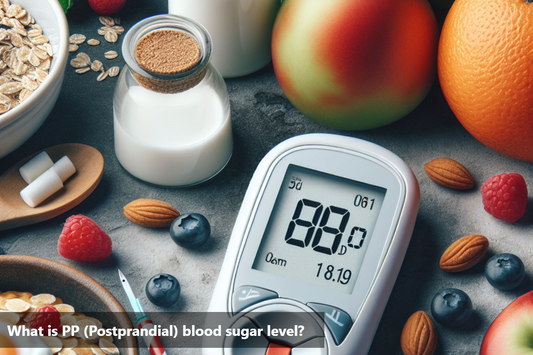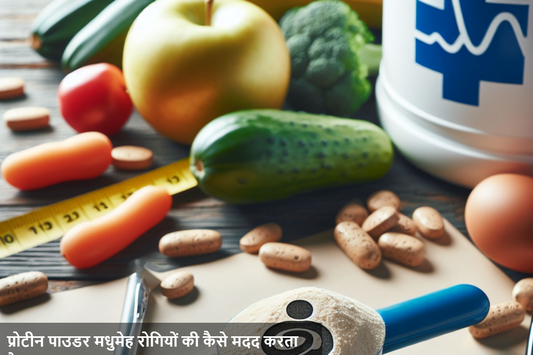According to the International Diabetes Federation (IDF) Diabetes Atlas Tenth Edition 2021, there were approximately 537 million adults (20-79 years) living with diabetes, which is projected to rise to a startling figure of 643 million by 2030. In India, IDF estimated that there were around 72.9 million patients with diabetes in 2017.
Diabetes is a chronic and potentially serious disease that is prevalent all over the world. It can be challenging to live and deal with diabetes, especially when there are myths and misleading information surrounding it. It is immensely crucial to have complete and legitimate knowledge about diabetes and the lifestyle-related to it, in order to deal with it effectively. Hence, here we’ve encountered the most common myths related to diabetes to make the process easier and more beneficial for you.
Myths and facts about diabetes
Diabetes is caused only by eating sugar
It is a common notion among people that since diabetes involves high blood sugar levels, it is caused by eating too much sugar. However, it is a condition that involves the body’s inability to produce or use insulin effectively, which is responsible for converting glucose into energy to be used by cells.
When we eat carbs, they eventually get converted into glucose for energy. ‘Carbohydrate tolerance’ refers to how our digestive systems respond to dietary carbohydrates. Eating excess carbs can lead to detrimental effects on health, including a rise in blood sugar levels.
Hence, consuming a diet high in sugar alone does not necessarily cause diabetes, though it can be responsible for overweightness, which is a risk factor for diabetes.
Low-carb diets are dangerous for people with diabetes
This kind of diet is not only diabetic friendly, but they are also one of the best ways of controlling blood sugar levels and putting diabetes into remission.
Out of the three macronutrients - protein, fat and carbohydrates - carbohydrates have the most impact on blood sugar levels. A low-carbohydrate diet, such as a ketogenic diet, has been shown to be effective for diabetics in many studies.
Lo! Foods is one of India’s largest cloud kitchens that provides a full range of ketogenic and sugar-smart food options and meal plans. These ensure a diet full of a variety of tastes, 50% lower blood sugar spikes, expert-designed meals that aid weight loss and hassle-free home delivery.
Only overweight and obese people can become diabetic
Obesity is a risk factor for Type 2 diabetes since it can affect the body’s sensitivity toward insulin and lead to high blood glucose levels. However, many people who were overweight or obese never develop diabetes.
On the other hand, it is also true that around 20% of people with diabetes are of normal weight or underweight. It is generally known as ‘lean diabetes’. Even if you have a good BMI (Body Mass Index), it is not a clear indicator of your body makeup and fat. If you have a concentration of fat in the middle part of your body, or the belly area (known as ‘skinny fat’), it increases the risk for diabetes as the fat in the belly is able to produce substances that interfere with the action of insulin.
Diabetes can only affect people in old age
Diabetes in young people has widely been described as the onset of diabetes in people below 35 years of age. The rate of young diabetics in India has increased exponentially in the last 30 years and continues to do so. Factors like sedentary lifestyle, unhealthy eating habits and increasing stress are some of the factors that contribute to this rise in diabetes in young people. Therefore, the notion that diabetes can only affect people in old age is not true anymore.
Home remedies alone can cure diabetes
There are many changes in lifestyle at home that one can adopt to help in the management of diabetes, but it is a serious and progressive condition which can lead to severe blood vessels or organ damage if left untreated.
Currently, there is no permanent cure for diabetes, but it can be effectively controlled and put into remission through proper medications and lifestyle changes. It is necessary to consult your doctor and nutritionist to follow the medications or dietary guidelines prescribed.
The bottom line
Diabetes is a serious condition, which affects around 537 million people around the world. It is a progressive condition, wherein our body makes or responds to less and less insulin over time. Therefore, it is necessary to have complete and true knowledge of what diabetes really is and how it can be managed. Consuming foods that do not cause blood glucose fluctuations, reducing weight, following medications and making effective lifestyle changes are some of the best ways to manage and control diabetes.
References:
https://www.diabetes.co.uk/diabetes-myths.html
https://www.healthhub.sg/a-z/diseases-and-conditions/592/facts--myths-of-diabetes
This Blog post is an initiative by DiabeSmart, to provide accurate and Nutritionist / Doctor approved information related to Diabetes. DiabeSmart is India's first Food brand designed specifically for Diabetics, that has been clinically tested on Diabetics and Pre-Diabetics to deliver 55% - 70% lower Sugar spikes. DiabeSmart is part of Lo! Foods - India's leading brand for Everyday Functional Health foods.







